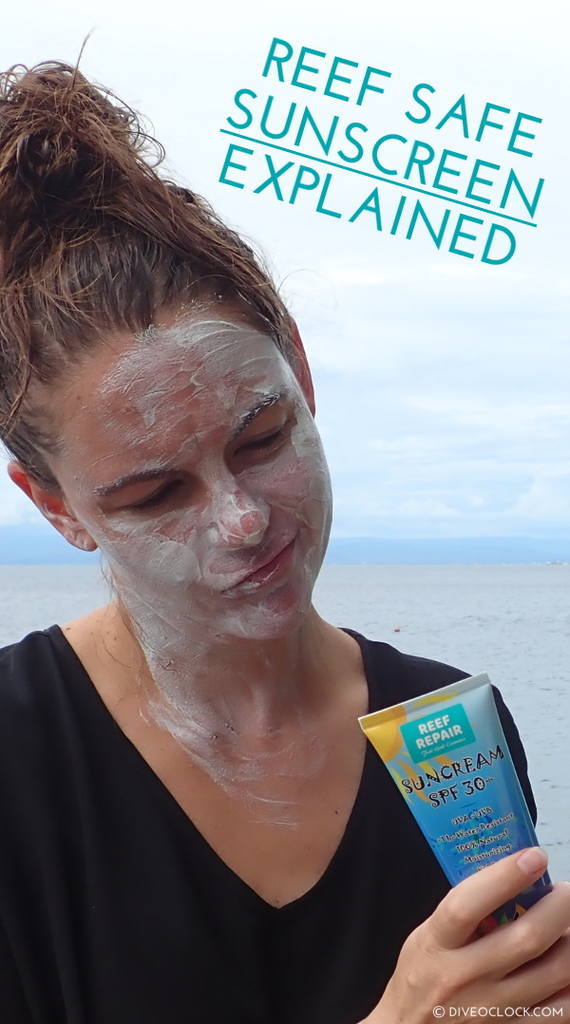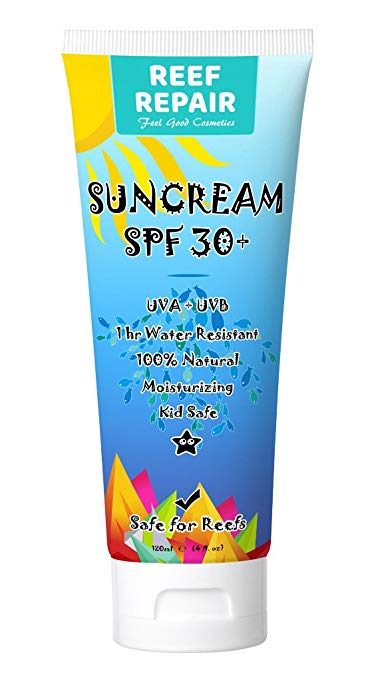Reef Safe Sunscreen Explained
There is a growing interest in coral reef safe sunscreen. Various cosmetic brands advertise their products as reef safe, but what is reef safe actually? Is it saving the reef? Does reef safe sunscreen protect you from getting skin cancer the same way as 'normal' sunscreen? These and many more questions answered!
Quick Links
- Sunscreen and SPF Factors (in short)
- What is Reef Safe Sunscreen Exactly?
- Safe for Reefs vs Save the Reefs
- Reef Safe Sunscreen Ingredients To Avoid
- Reef Repair - From Thailand with Love
- 5 More Sunscreen Tips
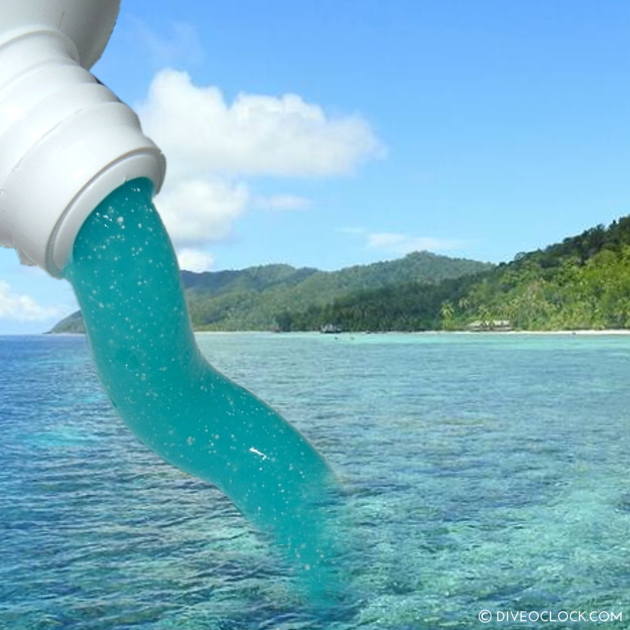
Sunscreen and SPF Factors (in short)
Sunscreen or suncream is a cosmetic product to protect your skin against UV radiation in sunlight. UV or Ultraviolet radiation has two types, UV-a and UV-b.
UV-a causes skin aging and can cause sun allergy while UV-b produces vitamin D but can also cause skin burn. Both increase the risk of skin cancer.
The SPF or Sun Protection Factor is a protections against UV-b radiation. The SPF factor equals an X-amount of time you can extend your time in the sun without getting sunburned.
The amount of time depends on your type of skin, how much you apply and how, if you wash it off / rub it off / sweat if off and such. There are more influencers; like higher altitudes (less atmosphere), snow (snow reflects UV rays which can bounce on your skin) or close to the equator (more direct sun rays).
If you get sunburned in 5 minutes without using sunscreen, SPF 10 gives you (10x 5) 50 minutes protection against sunburn. Make sure you apply at least SPF 30, this gives you 97% protection from the suns rays. Continue reading about High SPF ratings.
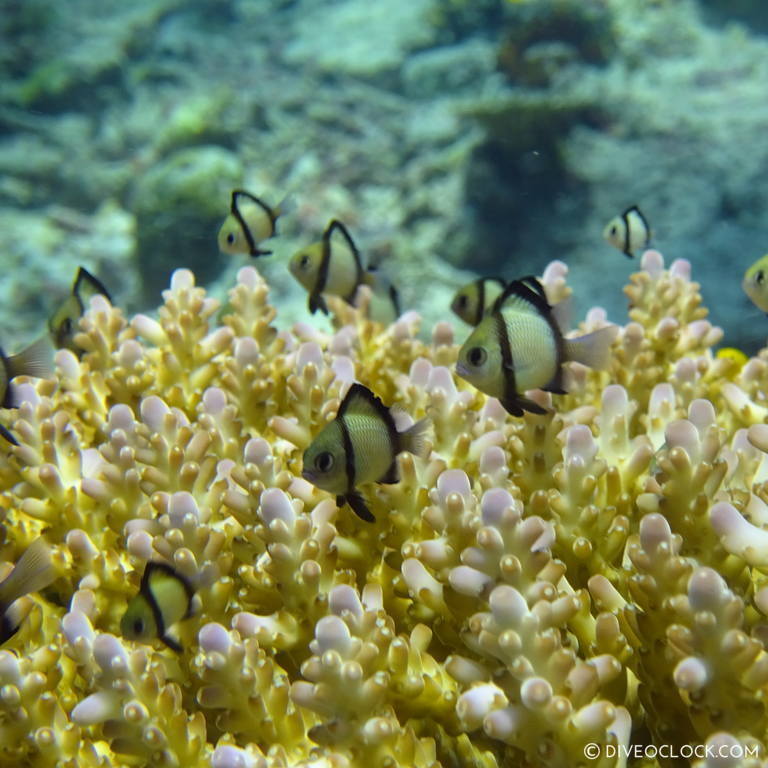
What is Reef Safe Sunscreen Exactly?
Reef safe sunscreen means sunscreen without ingredients that cause potential environmental damage to the reef.
Thanks to research more and more effects of cosmetic ingredients on corals are measured, so we will know more about the potential damage of ingredients in the future. This is where it gets complicated, at the moment there simply is not enough research to know exactly which ingredients to avoid.
With the knowledge we have now, oxybenzone and octinoxate are the first ingredients you should avoid. Although companies do label their product as reef safe by avoiding oxybenzone and octinoxate, unfortunately that is not enough.
Those companies could be accused of green labeling or green washing, but where to draw the line regarding reef safe or safer for the reef if evidence is lacking? Let's zoom in on what reef safe sunscreen ingredients you are advised to avoid as we speak.
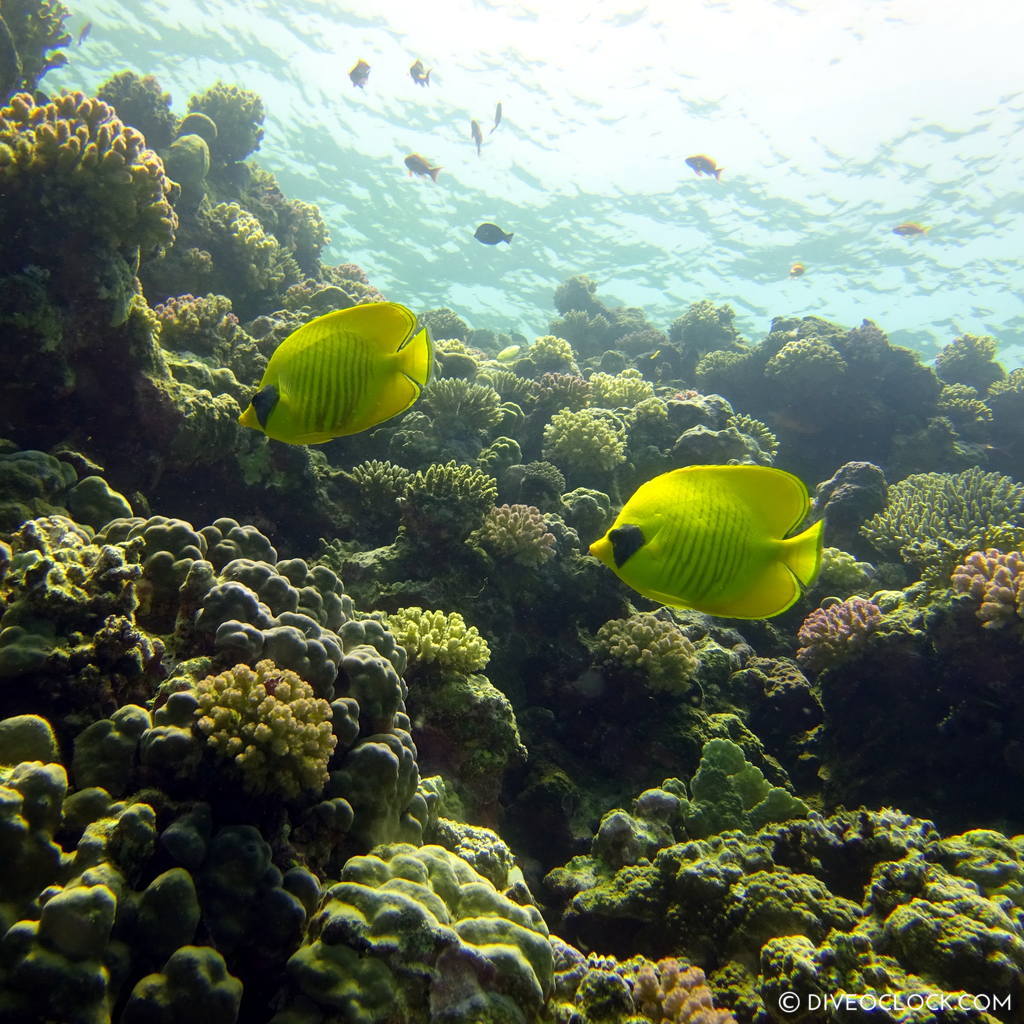
Reef Safe Sunscreen Ingredients To Avoid
There are two types of sunscreen ingredients to filter sun rays: Minerals and chemicals. Minerals ingredients like zinc oxide or titanium dioxide work like a mirror and reflect sun rays so they do not penetrate the skin. Chemicals ingredients like benzophenones absorb sun rays so they do not penetrate the skin.
If you look at the graphic you can find a list of the most common chemical and mineral ingredients of sunscreen.
You should avoid all chemical sunscreen ingredients mentioned, but there are a few more.
Unfortunately it is too simplistic to say 'avoiding all chemical ingredients makes sunscreen safe for coral reefs'. The two main minerals used in sunscreen, zinc oxide and titanium dioxide are not reef safe in general.
Titanium dioxide does not biodegrade and is found to react in warm seawater to form hydrogen peroxide which is harmful to all sea life. (Source: Hawaii.com)
Zinc oxide comes in two sizes: Nano and non nano, basically micronized parts that will go through your skin (nano) and very small parts that will stay on your skin (non nano). Non-nano zinc oxide works like a mirror, mentioned before, so this is the one you need for sun protection.
Nano zinc oxide can also form hydrogen peroxide (H2O2 / bleaching), so you should avoid nano zinc oxide regarding reef safe ingredients as well! Non nano does not biodegrade into nano particles, so non nano zinc oxide is safe for the reefs.
Are you still with me? Let's look at the bigger picture.
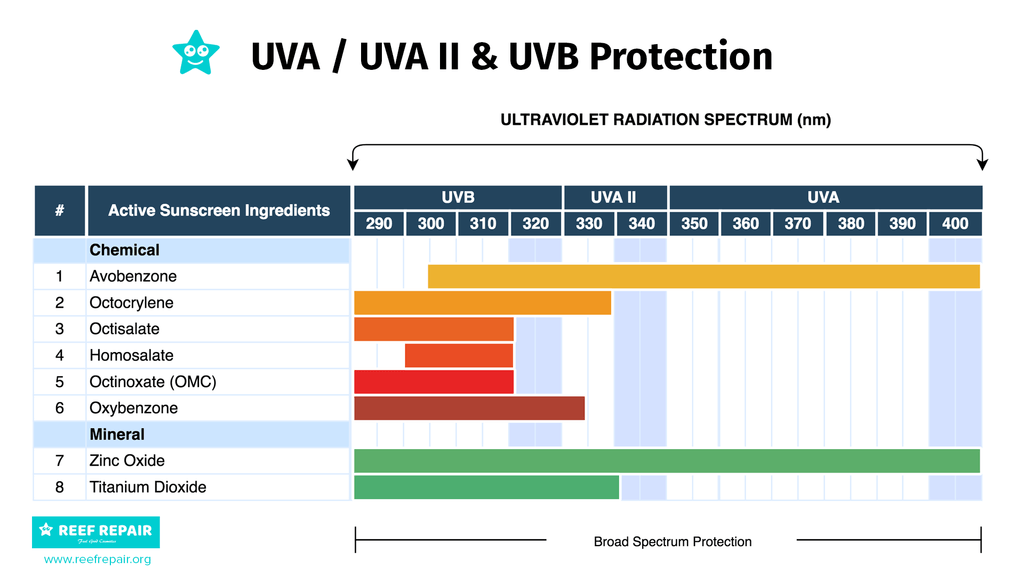
Safe for Reefs vs Save the Reefs
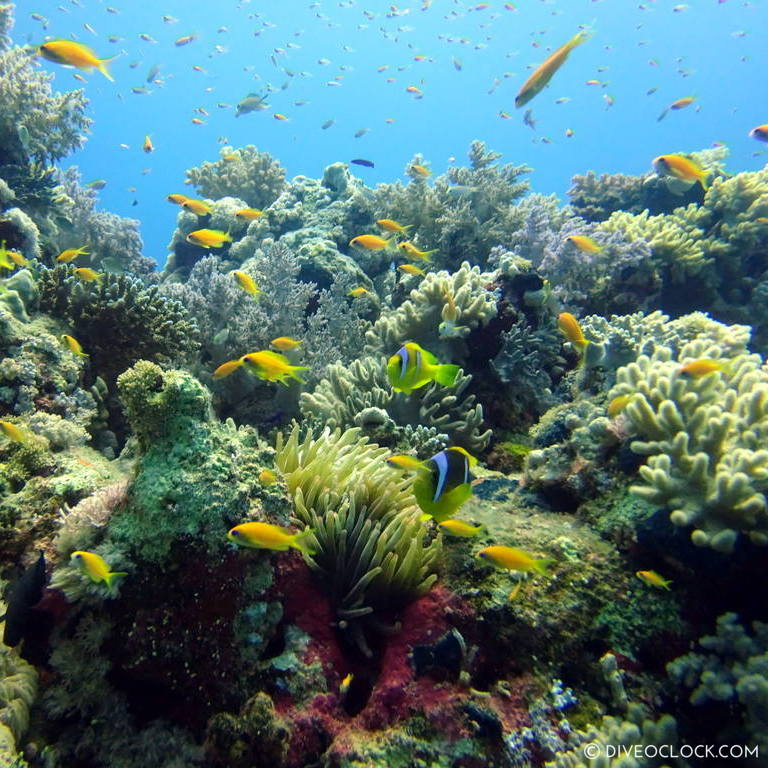
Reef safe sunscreen does not stop climate change or coral bleaching events, which is the bigger problem we all face. What you can do in this case is to avoid any harmful ingredients entering the water, not making it any worse in an already 'stessful' situation for the corals.
One of the things you can do to slow down this process is to use reef-safe sunscreen. Think of it as adding an inert gas like helium (trimix) or to a certain extend oxygen to your dive tank, it leaves less space for contents with higher risks - in this case for the reef.
Apart from the direct impact, maybe the indirect impact is even more important: Educating others in the importance of (protecting) our reefs!
The sunscreen bans in Hawaii (2018), Palau (2020), Bonaire (2021), Florida (2021) and Mexico (various dive centers do not allow sunscreen on dive boats) are examples of a growing focus on protecting coral reefs.
Whether or not you believe they are doing enough or the right thing - there is a movement going in the right direction!
Reef Repair - From Thailand with Love
Well, I do not know about you - but finding reef safe sunscreen at the most amazing dive areas can be a nightmare. In countries like The Philippines, Indonesia (not Bali), Thailand, Pacific and Caribbean islands you might search forever without any luck.
This is how I ended-up trying Reef Repair sunscreen - I could not get any around Pattaya in Thailand. Luckily Simon, the co-founder and owner of Reef Repair, wanted to help me out. Reef Repair sunscreen is based on Zinc Oxide, giving you the widest protection against UV radiation.
Now I have tried various reef safe sun screens, but I fell in love with Reef Repair. The design is already worth an applause, tropical vibes all over the outside - looking good in your bathroom. But, wait until you smell it - there is summer on the inside too! Actually I replaced my face cream / moisturizer with Reef Repair Sunscreen, but I will leave that up to you!
Yep, I love this brand and I recommend it for you as well, as a customer or as a reseller (they have shampoo bars and such as well!). Not because I got a tube of sunscreen for free or because there is an affiliate link here, but simply because of the product and the research & efforts of Reef Repair in protecting what we all love - THE REEF!

Buy Reef Repair products around dive shops in Phuket or direct from the company Reef Repair products in Thailand.
Buy Reef Repair products in the US, Europe or any other country online: Reef Repair products online.
Manufactured by Alive 2 Dive on Phuket.
Ps. That reef safe sunscreen does not have to be more expensive than regular sunscreen proves Reef Repair as well. And of course it is water resistant and non-whitening!
5 More Sunscreen Tips
- To help protect against skin cancer you should use sunscreen even in cloudy weather.
- Even with a high SPF you need to reapply sunscreen at least every 2 hours, or after sweating or going in the water or one of the other influences mentioned above.
- Always remember to protect your lips from the sun with a lip balm with broad spectrum of SPF. Lips have the highest incidence of skin cancer on the whole face and are often overlooked when applying sun cream.
- Apply sunscreen 30 minutes before going in the water or sport activities!
- Cover-up / wear UV-rashguards.

Are you already using reef safe sunscreen? Please share it in the comment box below!
If you want to contribute to this article, just send me a message.
Founder of Dive O'Clock "It's dive o'clock somewhere!"

Continue reading
Share this page:





